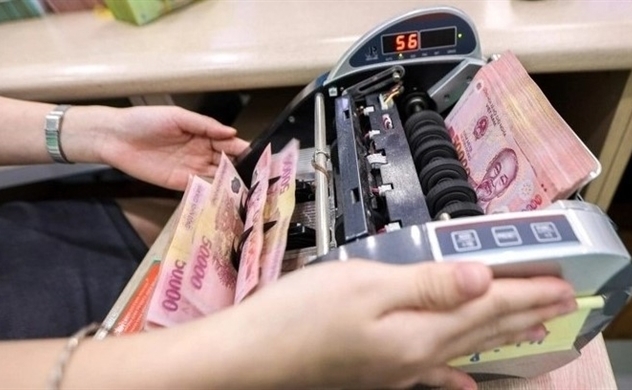Vietnam’s credit institutions expect improved business results in 2023

Credit institutions expect better business results in 2023. Photo by The Investor/Trong Hieu.
With the central bank’s move to reduce some policy interest rates and ease pressure on the monetary policy, Vietnamese credit institutions have showed more optimism about their business results in the second quarter and the entire 2023.
A recent survey conducted by the State Bank of Vietnam’s (SBV) forecasting and statistics department, showed that 66.7-79.6% of credit institutions expect their business situation to improve in Q2/2023, while 88.7% hope for positive profit growth this year as compared to last year.
However, 5.7% of credit institutions are worried about negative profit growth and another 5.7% forecast their profits would remain unchanged.
According to credit institutions, customer demand for loans, payment and card services, and deposits in Q1/2023 improved but failed to meet expectations. They predicted that such demand would develop positively in Q2, with the demand for loans expected to be higher than for deposits and payments.
They said that the liquidity of the banking system in Q1/2023 remained "good" and marked a significant improvement compared to Q4/2022. It is expected to be stable in Q2 and continue to improve until the year-end.
The whole system’s capital mobilization is expected to grow 3.2% in Q2 and 9.2% in 2023, a slight fall from 10% in the previous survey. Meanwhile, its credit balance is forecast to expand 4% and 13.1% respectively.
The SBV lowered its policy interest rates by 0.5 percentage points from April 3, the second cut within one month, to support growth amid global economic headwinds.
The refinance rate now stands at 5.5%, while the discount rate remains unchanged at 3.5%, as does the overnight interbank rate at 6%. Ceiling interest rates on Vietnamese dong-denominated deposits are cut by 0.5 percentage points to between 0.5% and 6.0%, depending on the terms.
Previously in mid-March, based on developments in the domestic economy, the regulator revised down some policy interest rates by 1 percentage point for the first time in two years.
Source: The Investor

 TIẾNG VIỆT
TIẾNG VIỆT 

_131447820.png)














